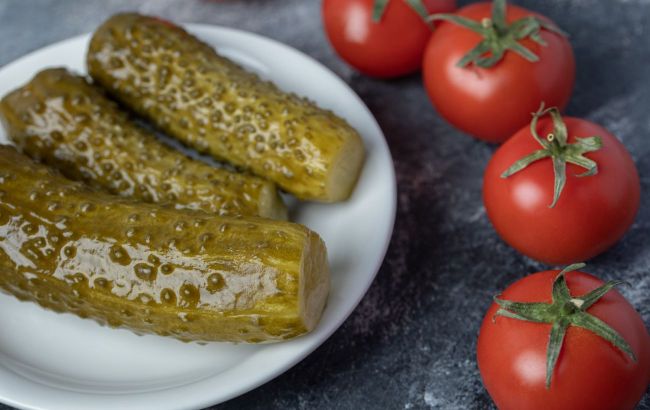6 foods that reduce inflammation and help fight the flu
 What products contain probiotics and what is their benefits for health (Photo: Freepik)
What products contain probiotics and what is their benefits for health (Photo: Freepik)
Probiotics are beneficial for digestion and can help with the flu. A Ukrainian dietician Natalia Samoilenko names 6 products that should be included in your diet.
RBC-Ukraine reports on how probiotics affect the body and whether they can be harmful.
How probiotics are beneficial
According to Natalia Samoilenko, probiotics have many benefits for the body, including:
- Strengthening the immune system;
- Increasing energy levels through the production of vitamin B12;
- Benefiting intestinal health, including during inflammation;
- Improving skin condition;
- Helping with flu and respiratory diseases;
- Reducing the side effects of antibiotic treatments.
Products containing probiotics
Sauerkraut
In addition to probiotics, sauerkraut contains fiber, vitamins C, B, and K, sodium, iron, and other beneficial micronutrients. It also has eye-healthy antioxidants lutein and zeaxanthin. However, these benefits apply only to unpasteurized sauerkraut.
Kimchi
Kimchi is a spicy Korean vegetable dish made with napa cabbage, carrots, garlic, onions, salt, and sauces, which is then fermented for 14 days. It is rich in vitamins A and C, at least 10 different minerals, and over 34 amino acids.
Pickled cucumbers
This is a good source of probiotics and vitamin K. In addition, consuming pickled cucumbers supports digestive health. It's important to note that cucumbers pickled with vinegar do not contain live bacteria.
Pickled tomatoes
The main advantage of pickled tomatoes is their natural antioxidant, lycopene. They also contain beneficial substances such as iodine, potassium, phosphorus, boron, magnesium, sodium, manganese, calcium, iron, copper, and zinc. Additionally, they have a natural antibiotic, quercetin, which has anti-inflammatory effects.
Certain types of cheese
Most cheeses are fermented, but not all contain probiotics. Semi-hard cheeses like cheddar, mozzarella, or gouda, as well as cottage cheese, may contain more probiotics than others, which are aged longer.
Yogurt
As is well known, yogurt is one of the best sources of probiotics. It offers health benefits such as improved bone, heart, and gastrointestinal health, and reduced risk of diabetes. However, not all yogurts contain live probiotics. The method of milk processing can sometimes kill the live bacteria, so it’s important to choose yogurt with active or live cultures.
How probiotics can be harmful
Many people take probiotics to ease diarrhea, constipation, or stomach pain, expecting to improve overall gut health in the long term. However, in some cases, probiotics can cause new symptoms, especially if taken in large doses.
For example, they can trigger an allergic reaction. Other potential issues include stomach upset, gas, diarrhea, or bloating.
Earlier, we reported on a fruit that is beneficial for child development.
Also, read about 5 reasons why you should never drink apple cider vinegar.
Sources: Instagram page of Ukrainian dietician Natalia Samoilenko and WebMD website.
This material is for informational purposes only and should not be used for medical diagnosis or self-treatment. Our goal is to provide readers with accurate information about symptoms, causes, and methods of detecting diseases. RBС-Ukraine is not responsible for any diagnoses that readers may make based on materials from the resource. We do not recommend self-treatment and advise consulting a doctor in case of any health concerns.


